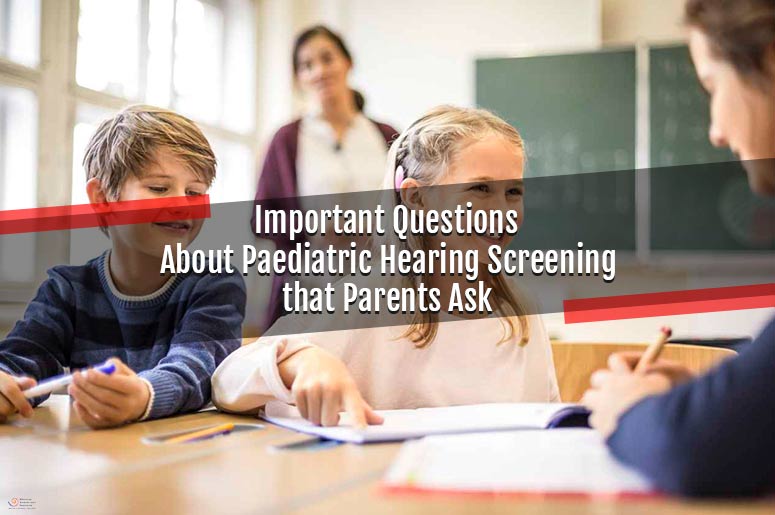Important Questions About Paediatric Hearing Screening that Parents Ask
Out of every 1000 children, 2 of them are born with hearing loss. But most of them are born to parents with normal hearing. However, medical experts are suggesting that newborn babies should have paediatric hearing screening. So, as early as possible, hearing issues can be detected if there are any.
Hearing tests is as important for children as it is for adults. It is because hearing problems can develop during the child’s early years. Aside from that, children at the age of 0-3 years old are still on the critical process of growth. So, any issues with the auditory system may hinder or affect any of these developments.
Mums are constantly asking several important questions. One thing that is already expected of them. Especially when it comes to their children’s hearing health. However, paediatric audiologists provide several medical recommendations. To find out, read on till the end of the article. And learn about the answers to these questions as well.
What Questions Do Parents Ask about Paediatric Hearing Screening?
1. Why is it important for my child to undergo paediatric hearing screening early?
The first 6 months of the child’s life is the most critical in terms of language acquisition and learning. Also, during the first three years of the child’s life, the brain is on the process of maturity. During these early years, if the child has any hearing difficulties, one way or another it may affect his or her language development or growth. Hearing specialists suggest that babies from 0-6 months undergo paediatric hearing screening. According to them, to detect hearing difficulties early is better than to prolong the issue. Chances are high that it becomes too complicated to treat.
2. When is the most preferable time to test my child’s hearing?
Newborn infants are medically advised to undergo certain types of screenings, one of those is hearing screening. The baby’s hearing should be screened or tested right before leaving the hospital or birth centre. If not, parents should immediately schedule an appointment with an audiologist. This is extremely important and parents should be able to understand that. Otherwise, the baby’s hearing health will be compromised. This can, later on, develop into something more serious.
3. What happens during my baby’s hearing screening?
Commonly, there are two types of tests that will assess the hearing ability of children. However, techniques and methods according to conditions. The procedure is subject to the recommendations and prescription of the audiologist. The two common types of paediatric hearing screening are:
- Otoacoustic emissions (OAE). These are sounds that the cochlea emits in low-level. This test uses a microphone to record the sounds through the ear canals.
- Auditory brain stem response (ABR). ABR is a test that uses electrodes which will be attached to your skin and will be connected to a computer. They will record your brain’s response to the sounds that you will hear through headphones.
Learn more: Children’s Hearing Tests
4. What will I do if the results say that my child has hearing problems?
If you think your child has hearing problems, you should consult a hearing doctor. But say, for example, you already informed about your child’s hearing problem. This means, you still have to be open for professional instructions. Your child’s hearing specialist will educate you regarding the things that you should do. The discussion will include the treatment and other medical options. In some cases, you may also discuss follow up hearing screenings.
Also read: Paediatric Hearing Tests
So we are now familiar with how most parents question paediatric hearing screening. We should understand by now that it is extremely necessary. However, if you think you have failed to let your child’s hearing be screened, fret not! You can always do something today. It is never too late to take action. Just be sure to have enough knowledge of what to do.
Schedule an appointment with your audiologist now!
You may also read additional information about paediatric hearing tests and more on our blogs and articles. We understand the need for assurance. That is why we aim to provide you with useful information that you should know. You might be needing these prior to your appointment with an audiologist.

